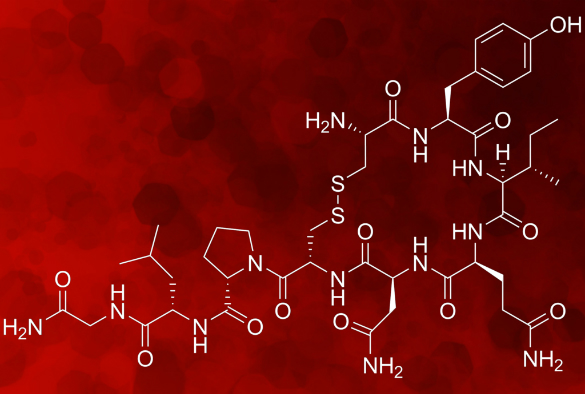A new and improved version of the ‘love hormone’ oxytocin has been developed by an international collaboration of scientists, including members of staff from the Liverpool University’s Institute of Translational Medicine.
The team has created a synthetic form of the hormone which is less likely to have side effects.
Professor Susan Wray from the Department of Molecular and Cellular Physiology, said: “The hormone is crucial to women in labour but is also fundamental to social behaviours such as maternal care, partnership bonding, social interactions and stress and anxiety responses. It is however known to activate a number of receptors, some of which can lead to unwanted side effects, such as cardiovascular problems.”
The new compound the team has developed is just as potent as oxytocin, but shows improved selectivity for the oxytocin receptor, potentially reducing dangerous side effects.
The team, including chemists from the University of Queensland and Vienna, created a new molecule by introducing small modifications to the structure of oxytocin, which reduced the activity of receptors linked to some side effects.
Dr Sarah Arrowsmith, also from the Department of Molecular and Cellular Physiology, said: “A potential problem with oxytocin when given to women who need their labours augmented, is that the contractions become too long-lasting and the uterus may even rupture. What we found with our new compound is that not only does it work on human uterus, but it produced a more regular contraction pattern in uterine tissue, which indicates improved safety for mother and baby. Importantly it also did not activate the muscle cells of the heart.”
Oxytocin is being investigated as a treatment for a variety of high-profile conditions such as autism, migraine, schizophrenia, anxiety and stress.
The team also tested the new compound in a mouse model and found those treated with the new compound overcame social fear rapidly, highlighting its therapeutic potential to treat social phobia and anxiety, or autism. Although promising, much further work is required in this area.
Professor Wray added: “We are excited about this new compound not only because it is a promising lead to help pregnant women and others, but also because it is important for understanding the role of the oxytocin receptor in health and disease. Sarah will start working on this when she returns from maternity leave.”







